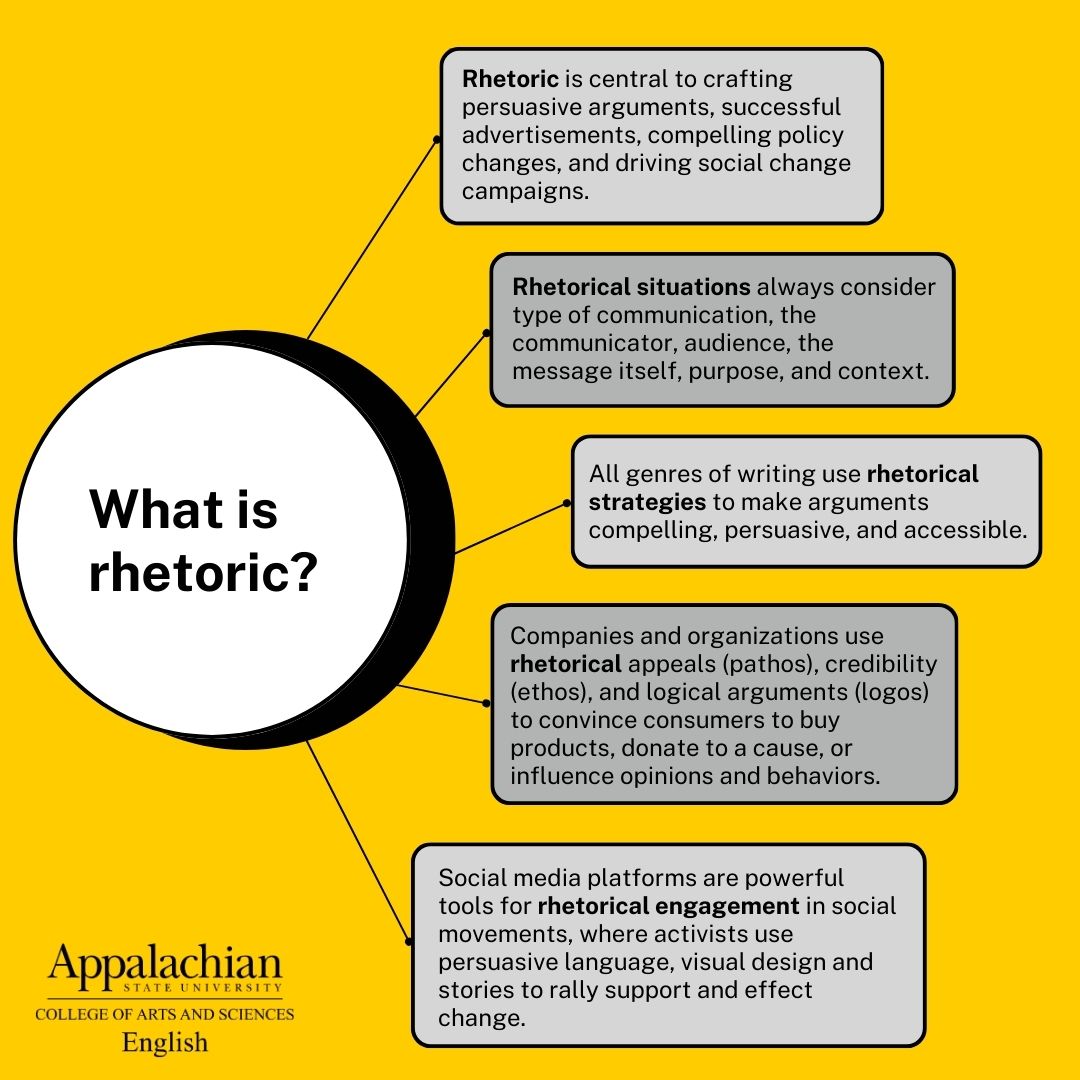Why should I concentrate or minor in Rhetoric and Technical Writing?
Appalachian State graduates in English with a concentration or minor in Rhetoric and Technical Writing (RTW) excel wherever employers value cultural literacy and the ability to read carefully, think critically and write effectively. As a student, you will study the key theories and practices of rhetoric and technical Writing, which will help you become a more skilled writer and communicator and will afford you the opportunity to apply your skills across various professional settings. In our program, you will learn:
- About the histories, theories, concepts, practices, and communication genres of rhetoric and technical writing.
- How to strengthen your content writing, editing, and visual design expertise to apply these skills across various media and platforms.
- To present sophisticated oral arguments and persuasive reports, documentation, and various forms of visual communication.
- To create a professional portfolio which will aid you in securing a job after graduation.
What can I do with a concentration or minor in RTW?
According to the U.S. Bureau of Labor Statistics, the 2021 median pay for technical and professional writers was $78,060/year. The professional skills students sharpen in our program – critical thinking, oral and written communication, editing, visual design, and project and team management – are those that consistently make prospective employers’ top 10 list of most sought-after qualifications for a job.
To further strengthen our students’ job prospects, we require students in our program to take a 3- or 6-credit hour internship before graduation. Internships are a cornerstone of our pedagogical commitment to experiential learning, reinforcing through application the theory they learn during their coursework. Students have interned locally, regionally, and globally with organizations like Habitat for Humanity, the Health and Hunger Coalition, the High Country Press, Rhino Records, the Smithsonian Museum, the CDC, and Spin Magazine, to name a few.
It’s not just what you say. It’s how, why, and to whom you say it.
Our program offers various courses where students can explore the uses of rhetoric in practical and theoretical terms. Students can take courses in grant writing, editing, social media storytelling, and visual design just to name a few. Each of our courses equips students with the practical and theoretical knowledge they need to be thoughtful and productive global citizens.
What is technical writing?
Technical writing is a study related to rhetoric. As a profession, technical writing developed after World War II in response to the need for more practitioners capable of understanding and communicating complex information to a variety of technical and nontechnical audiences. Given the ubiquity of technology today, it’s no wonder the field of technical writing has continued to grow, boasting some of the fastest growth and highest starting salaries of any industry in the Humanities. Graduates of our program go on to become social media managers, marketers, communication coordinators, usability designers, and science and technology communicators; or find a career in government, non-government, and for- and not-for-profit organizations.
Curious about the further advantages of a humanities degree?
Learn more about what you can do with a humanities degree here, and check out these articles:
- The Art of Choosing What to Do With Your Life- The New York Times
- Colleges Should Be More Than Just Vocational Schools- The New York Times
- Justifying a Liberal Arts Education in Difficult Times- The New York Times
- Live and Learn- The New Yorker
- Why Majoring in the Humanities Can Be a Great Career Move- U.S. News and World Report
- When It Comes to Future Earnings, Liberal-Arts Grads Might Get the Last Laugh- The Chronicle of Higher Education
- Why the Worls Needs English Majors- Ron Vitale on LinkedIn
